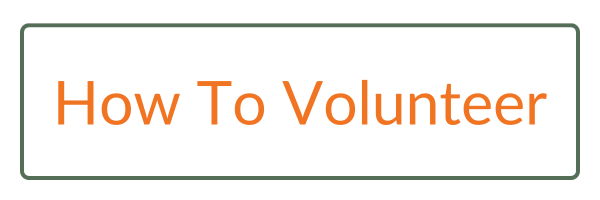Why Create Writing Quests?
This week, we are diving into Why Create Writing Quests, Volunteer Spotlight, How to plan a successful Quest, Writing Tip How to create a logline, Prompts and more.
Writing Quests is a writing community that strives to connect writers with writing challenges to foster a continued flow of words for your preferred genre.
Why Create Writing Quests?
Properly done, socially enabled writing Quests can be tremendously fulfilling experiences. We want to draw upon our experiences to make these challenges more widely accessible to potential participants.
Writing Quests aims to facilitate communities worldwide in setting out on a shared adventure of creativity, discovery, and support.
There is nothing more human than telling a story. Stories define cultures, give us identity, explain the world to us, and help us make sense of our experiences. They can capture us, trap us, or transform us. In light of their power, Writing Quests aims to enable every person to find their voice and tell their own story.
While we believe humans can achieve amazing things independently, we can achieve even more if we work together. A writer does not need to be alone at their desk. We embrace and encourage communities of openness, plurality, and diversity. We believe any form of creativity needs an inclusive and accepting environment to grow and shine. We can all achieve so much more when we support each other.
This framework aims to tell stories of love and loss, injustice, success and failure, beginnings and endings, and hope and despair. It also includes stories of humans, monsters, cyborgs, aliens, animals, and angels. Sad stories, happy stories, tragic stories, and comical stories—any story is worth telling, and every writer deserves a community to support them in their quest.
Volunteer Spotlight- Joanna aka hevs
Writing
I've written at least 750 words every day since 2010, won every NaNo since 2011. I focus on speculative fiction (both scifi and fantasy). I like to explore cultural clashes, linguistic problems, and the darker sides of human (and non-human) experiences.
Hobbies
Reading (speculative fiction and classics), baking bread, riding my bike, knitting, true crime, and sports (mainly road cycling and rugby).
Self-Promo
You can find me on my blog silvahevsum.blogspot.com (it's mainly in Polish but there are few reviews in English, linked in the menu on top) and on my writing group’s discord (again, primarily in Polish).
WQ Work
I mainly focus on the International Committee and the Framework Committee. I‘m currently the Quest Guide our alpha test! I also hope I'll be able to contribute more in the future.
Personal Quest
To get better in everything I do; one step at a time :)
How to volunteer/contribute
We have three different ways to get involved:
Quest Guides- The people who host the Writing Quests are called Quest Guides. They help creatives through the process of setting goals, prepping for the quests, and providing encouragement during the event. Click on Get Involved> The Framework to get started.
Participants- Anyone can participate, even if you are not a writer. Visit our website to find a participating group near you.
Volunteers- Writing Quests is an all-volunteer organization. If you want to volunteer, please email info@writingquests.org and let us know your experience and if applicable, what you want to help with.
We are actively in need of people with technical skills like website design/coding (our writingquests.org site is created with Hugo) and web application design/development (e.g., with Vue.js to create our rules generator or with Laravel, to work on a web-based progress tracker).
How to Use Tools for Planning
Starting a new writing project can be exciting! You’ve seen so many cool stories/movies with rich plots and unforgettable characters. Now, your head has begun to spin a tale of its own. You might be the planner type who might want to use this tactic for planning purposes. Maybe you’ve been working on an idea for a long time and need to refocus what you’ve written. Or perhaps you are ready to give a pitch to someone.
In all of these cases, you should try and create a 100-word synopsis. This is a place where you will only hold the essentials. To start, you should begin by introducing your character, the setting, and the major conflict. Make sure to sprinkle in some of their motivations and some of the plot twists and challenges they will face. You want to make sure their motivations are relatable in an almost gut-wrenching way to hook your reader, after all the point is to keep them interested. Summarize pivotal scenes, and don’t be afraid to end with a bit of suspense, but try to avoid too many details so as to not overwhelm them. Remember to try not to give away any spoilers. You’re trying to sell your audience on them wanting to read your work and that they want to come back for more.
Now, if creating a synopsis of your work is too intimidating, you can try creating a logline. A logline is a one to two-sentence summary meant to hook the reader. You can use this for your planning purposes, too. It should include an inciting incident (conflict), the main character, the action, and the antagonist. Again, no spoilers. The conflict should explain what the stakes are for the main character and a little about the antagonist's role. This could be done for your overall book or each chapter if you want.
Both the 100-word synopsis and the logline are great tools for helping you with your story, whether you're pitching someone or keeping your writing focused and moving your story along.
Five Tips WQ Guides Can Use to Plan a Successful Quest
Know your limits. All you can do is, is all you can do. Don’t get swept up in the planning phase of believing more is better. A few high-quality, fun events are better than a bunch of boring ones.
Finalize as many of your plans as far in advance as possible. If you’re doing them online or in person, make sure that the venue is booked and your time is blocked off.
Have both a Kick-Off and an It’s Over Party. This is important because we are doing Writing Quests in a group to meet and socialize about this thing we love to do. Celebrating that we are all doing something creative together will bond your group and set a positive tone for your “off-season,” if you have one.
Research creativity games you can play as a group. Have one game at every single event. Creativity is a learned skill. We can all get better at it. Playing a game is a socially safe way to ensure everyone gets something out of the experience.
Promote, promote, promote. Make sure you put out your Quest Events everywhere to grow your group. Promote to the group in a clear and concise way so they know when to show up. Promote to the world at large to spark interest in your group.
Now a prompt: Write a scene describing food typical in your story’s world. Extra bonus if you include a social event as well.
Upcoming events
In August, we hope to start Beta testing and will have a mini-unveiling event where we will walk through The Framework. This event will be open to all, but it will primarily be for Quest Guides to understand how to use The Framework.
In October, we will start prepping for November’s Novel Quest, a fun writing challenge run by Writing Quests. We will release templates for the challenge and include social media banners for writing groups and participants. More information to come as we get closer to the month.
Coming August:
Aug 1: Beta Testing Starts
Aug 1: Framework Walkthrough Event
Coming October:
Oct 1: Preptober for November’s Novel Quest Starts
Oct 15: Midpoint Touch Base
Look for us online
Visit our website: www.writingquests.org
Find us on the social medias:
Twitter www.x.com/writingquests
Pinterest www.pinterest.com/WritingQuests/
Instagram www.instagram.com/writingquests
Facebook Group www.facebook.com/groups/writingquests
Youtube: https://www.youtube.com/channel/UCGNbZWYi4pTkENOYYLgtCvg
Volume 3













